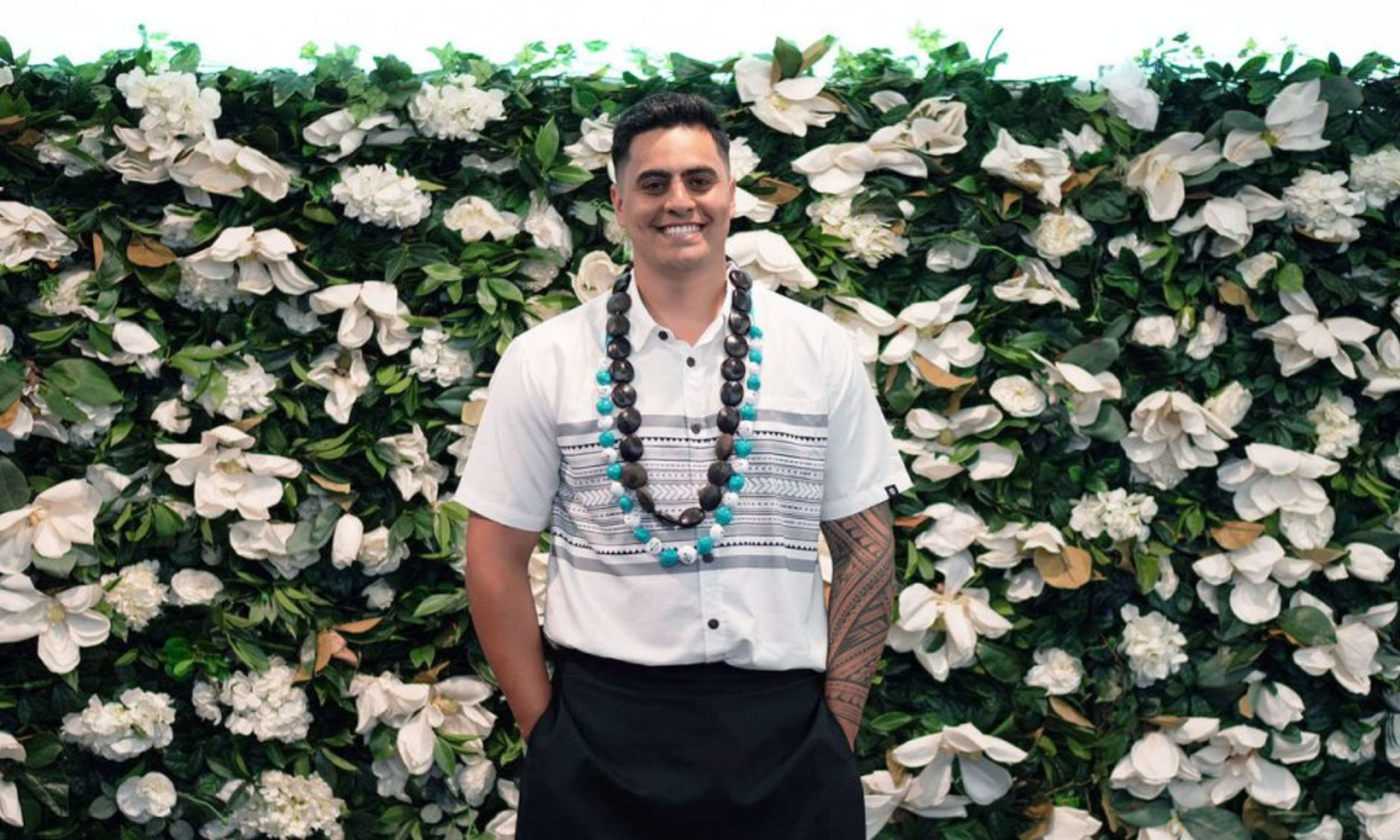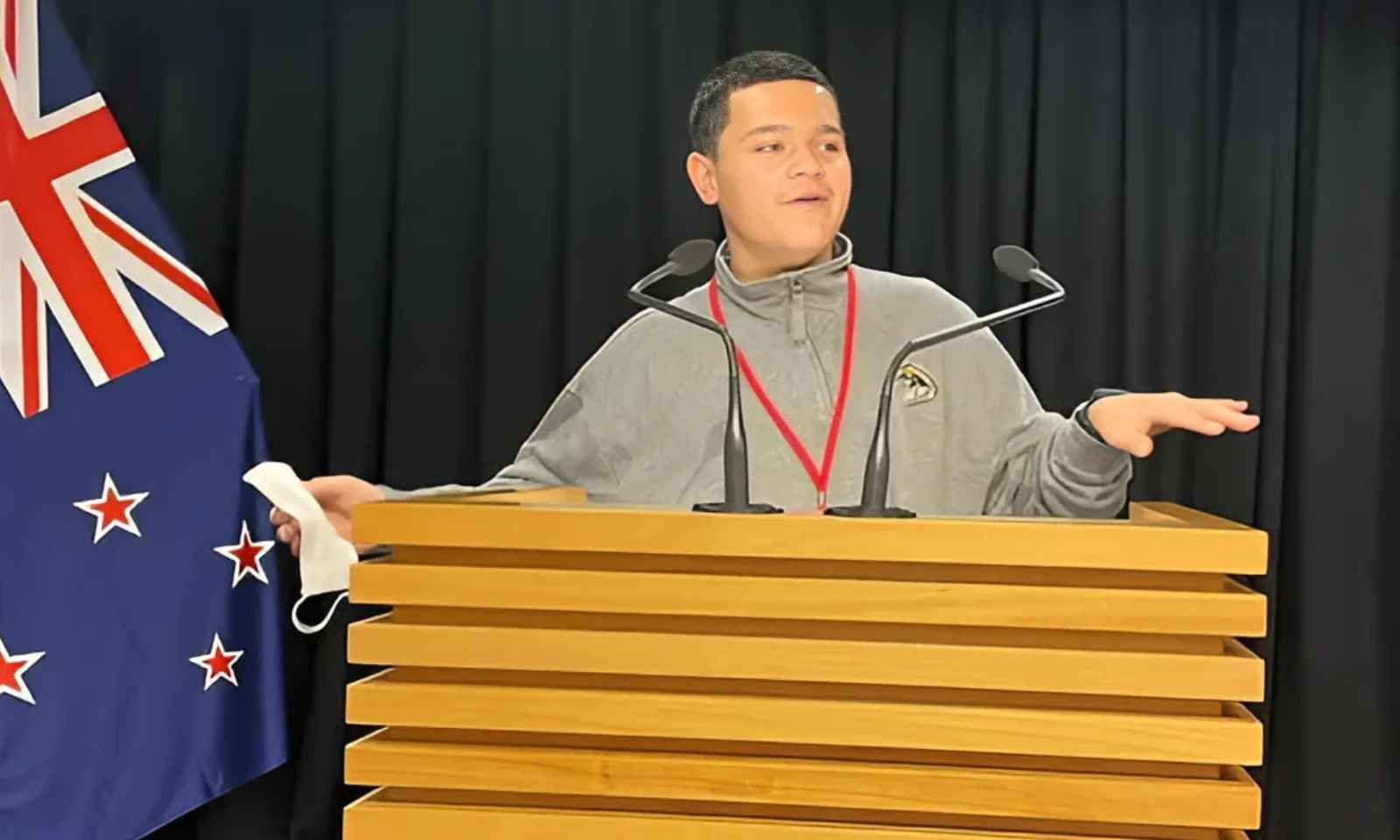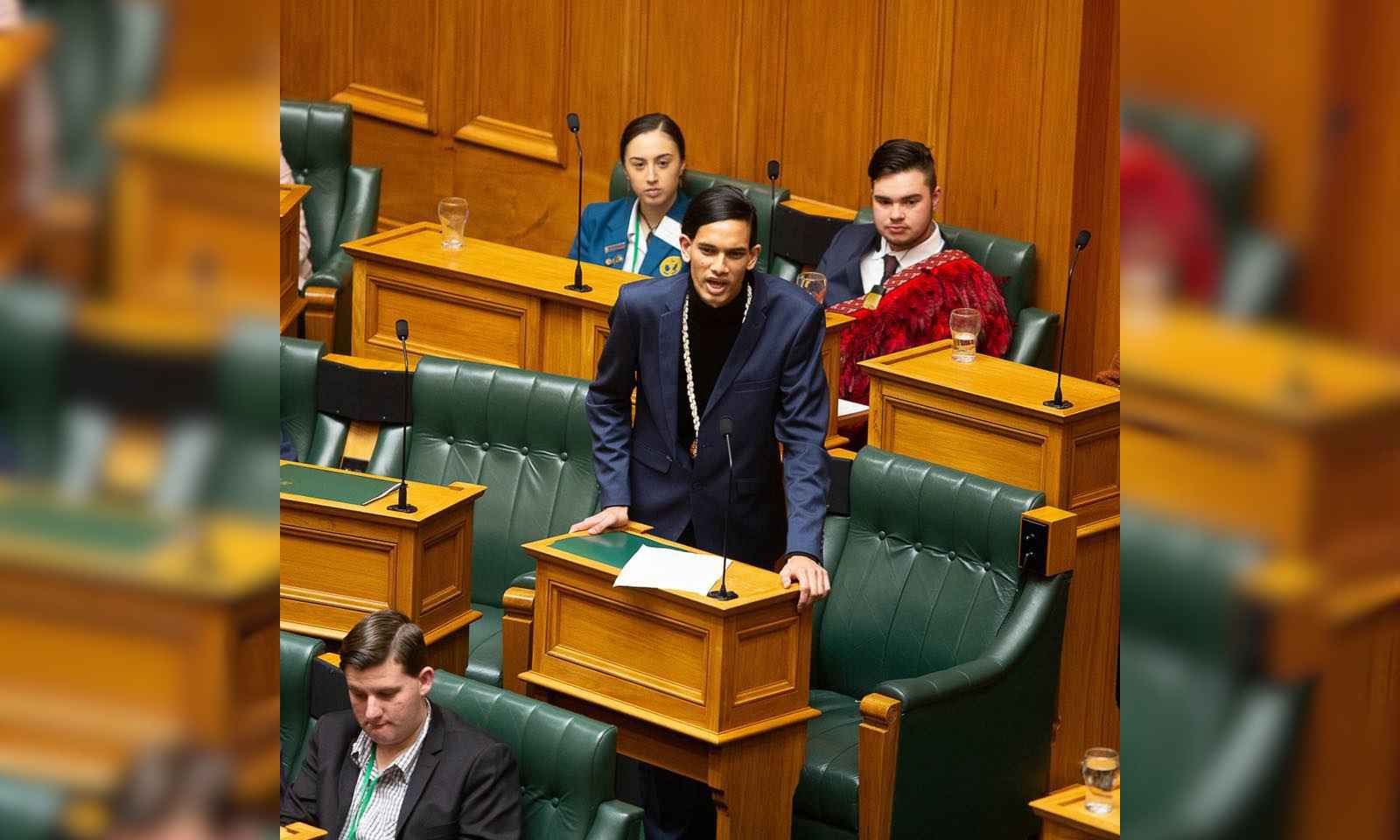

2019 Youth MP for Manurewa, Ta'a Ramsay Vili in parliament.
Photo/NZ Parliament
Low Pacific representation at Youth Parliament
Former participants Shaneel Lal and Andre Fa’aoso encourage more Pasifika youth to take advantage of this opportunity and make their voices heard.



Our generosity is our strength but we must spend wisely this Christmas - expert

Excellence and possibility: Meet the new face of Pacific medicine in Aotearoa

Top 10 Pacific Island songs you need on your summer playlist in 2025


Operation Xmas Drop 2025: US and allies deliver hope to remote Pacific communities

Our generosity is our strength but we must spend wisely this Christmas - expert

Excellence and possibility: Meet the new face of Pacific medicine in Aotearoa

Top 10 Pacific Island songs you need on your summer playlist in 2025
For former Youth MP Shaneel Lal, participating in parliament was a life-changing experience.
Coming from Ōtahuhu College in South Auckland, a decile one school, Lal initially felt out of place.
“Youth Parliament felt like it was out of reach because it felt like these opportunities were reserved for the well-off and worldly young people. But I didn’t allow that to stop me from putting my hand up.”
It wasn’t just about personal growth. It became a chance to advocate for real change.
“In 2017, when I was volunteering at the Middlemore Hospital, I was offered conversion therapy, which is when I realised the practice was legal in New Zealand.
“I wanted to end it, but having no prominence, relevance, resources or connections as a working-class immigrant teenager, there was little I could do.
“I saw Youth Parliament as an opportunity to push forward the movement to ban conversion therapy.”
Lal was selected as the Youth MP for Jenny Salesa under the Manukau East electorate, now known as Panmure-Ōtāhuhu.
Lal's speech at the Youth Parliament and ongoing advocacy fuelled a movement that gathered over 170,000 petition signatures and more than 100,000 submissions to the select committee submissions.
“Youth Parliament, in many ways, changed my life. I do not know where I would be and what I would be doing if I did not get that opportunity.”
Watch Shaneel Lal's interview on Pacific Mornings about the Conversion Therapy bill.
The need for more Pacific voices
The 11th Youth Parliament, announced by former Youth Minister Matt Doocey, will take place on 1 and 2 July this year.
While it presents an exciting opportunity for young people to experience the political process, there is a critical need for more Pacific representation.
Data shows that Pacific participation has been inconsistent. In 2019, Pacific Youth MPs made up 13.33 per cent of the total, but in 2016, that number was only 6.65 per cent.
Participation from Pacific young people in the Youth Press Gallery was recorded only in 2007 and 2022, with just two members each year.
Former Youth Press Gallery member Andre Fa’aoso shared how the experience helped him.
He highlighted opportunities such as participating in a Post-Cabinet press conference led by Jacinda Ardern, receiving mentorship from Press Gallery journalists, and writing for mainstream media outlets like Radio New Zealand.

Just over 13 per cent of participants in Youth Parliament 2019 were Pacific. Photo/NZ Youth Parliament 2019
Fa’aoso, who is studying political science and economics at Yale University, said his experience at Youth Parliament helped him gain admission to an Ivy League university.
“We need more Pacific people in spaces like this. It’s crucial that Pacific voices are part of political conversations. We have unique stories to tell.
“If we’re not at the table, our voices won’t be heard. Youth Parliament is a chance to speak up and make a difference.”
Pacific people are among the youngest populations in New Zealand.
According to the 2023 Census, Pacific people make up 8.9 per cent of New Zealand’s total population, with a median age of 25.
The Pacific community has grown at about twice the rate of the overall New Zealand population.

Former Youth Press Gallery member Andre Fa'aoso. Photo/Andre Fa'aoso Instagram
“Listening to young voices is important, but it is particularly important for our community,” Lal said.
“It is absolutely necessary that in the present, Pacific voices shape what the future looks like.
“I understand the sentiment of creating a better future for the next generation, but our Pacific community is so young that we are the next generation, and we are already persisting through the harsh socio-economic realities.
“What we choose to sow today is what we will reap tomorrow.”
A gateway to political engagement
Youth Parliament runs from late April to August, with the two-day event at Parliament serving as the highlight.
Up to 123 Youth MPs will be selected to debate issues and advocate for their communities.

Former Youth MP Shaneel Lal. Photo/NZ Parliament
Twenty Youth Press Gallery members will report on the event, learning first-hand the media’s vital role in holding politicians accountable.
How to get involved
Applications for Youth Parliament opened on 3 February and will close on 28 February.
Young people aged 16 to 18 can apply to become Youth MPs, while those aged 16 to 24 can apply for the Youth Press Gallery.
For more information, email: beheard@youthparliament.govt.nz